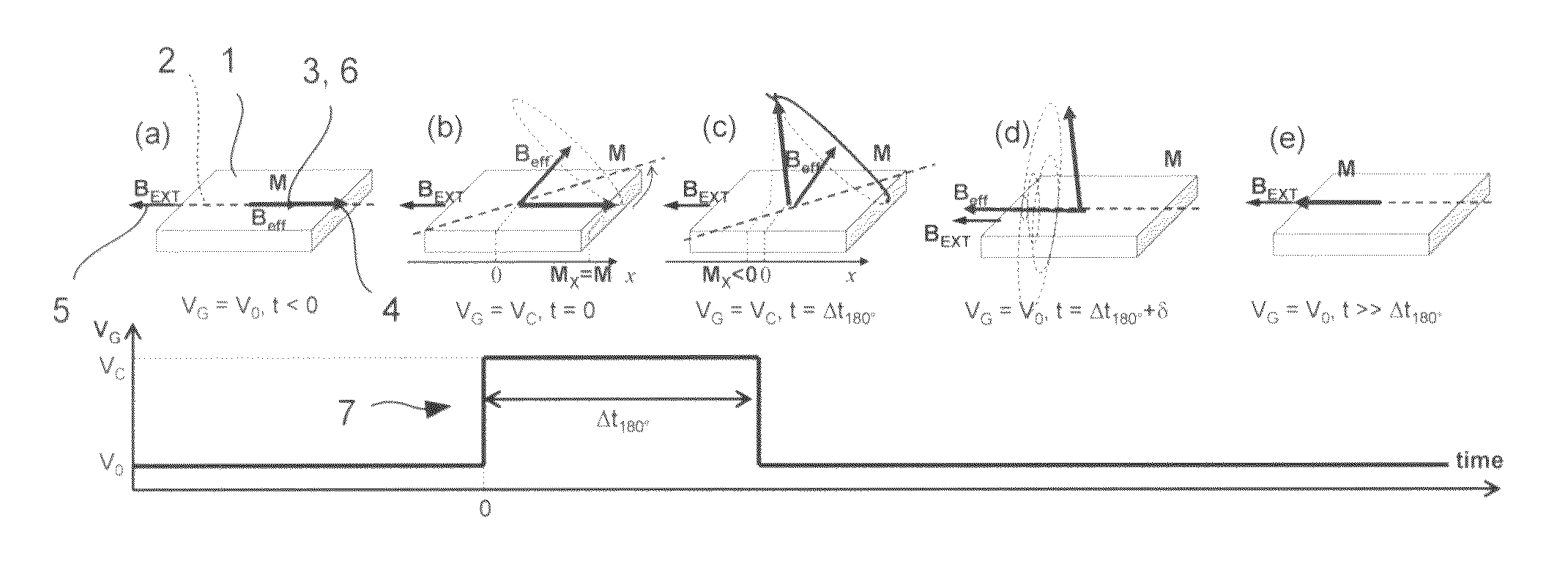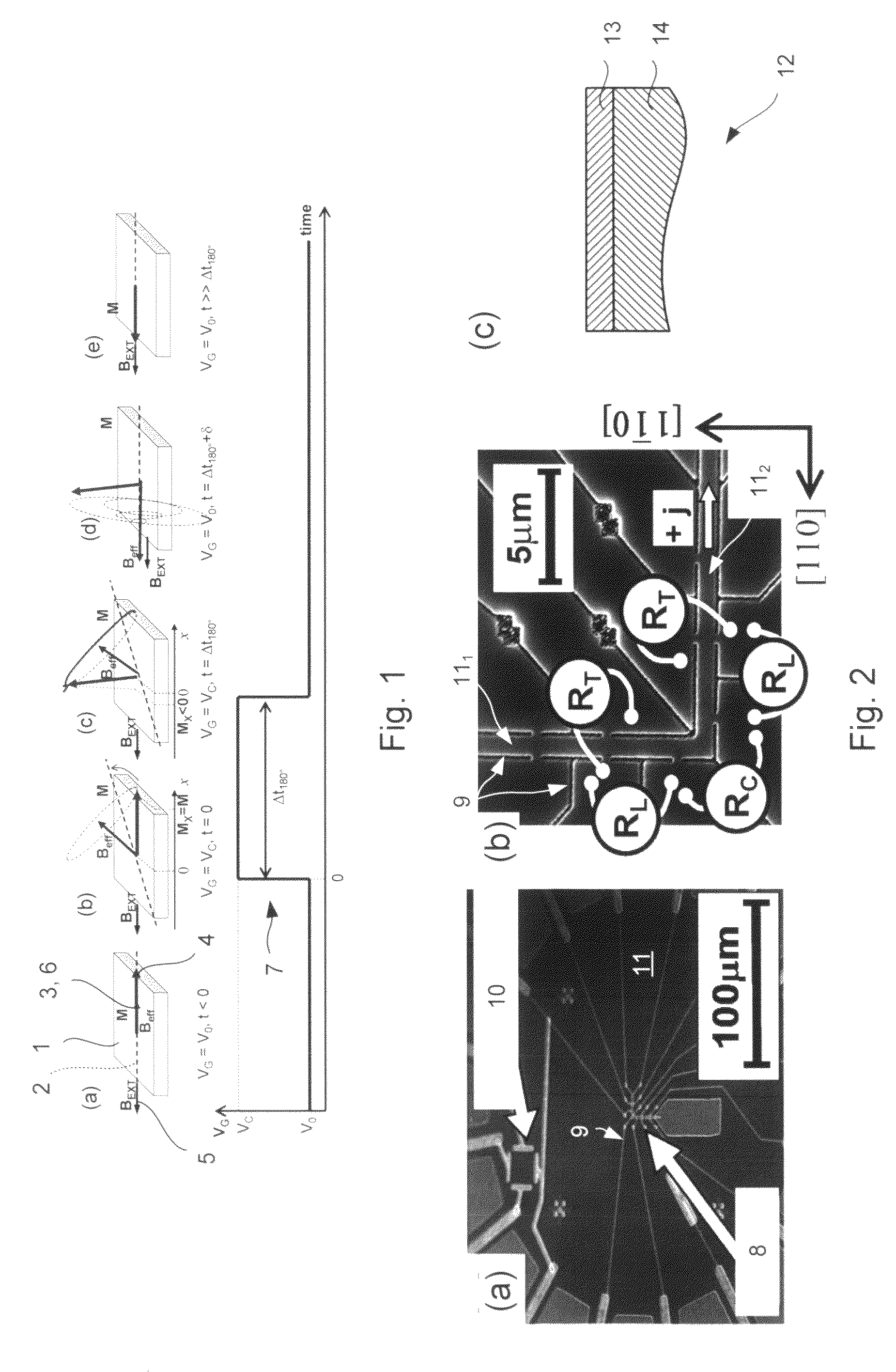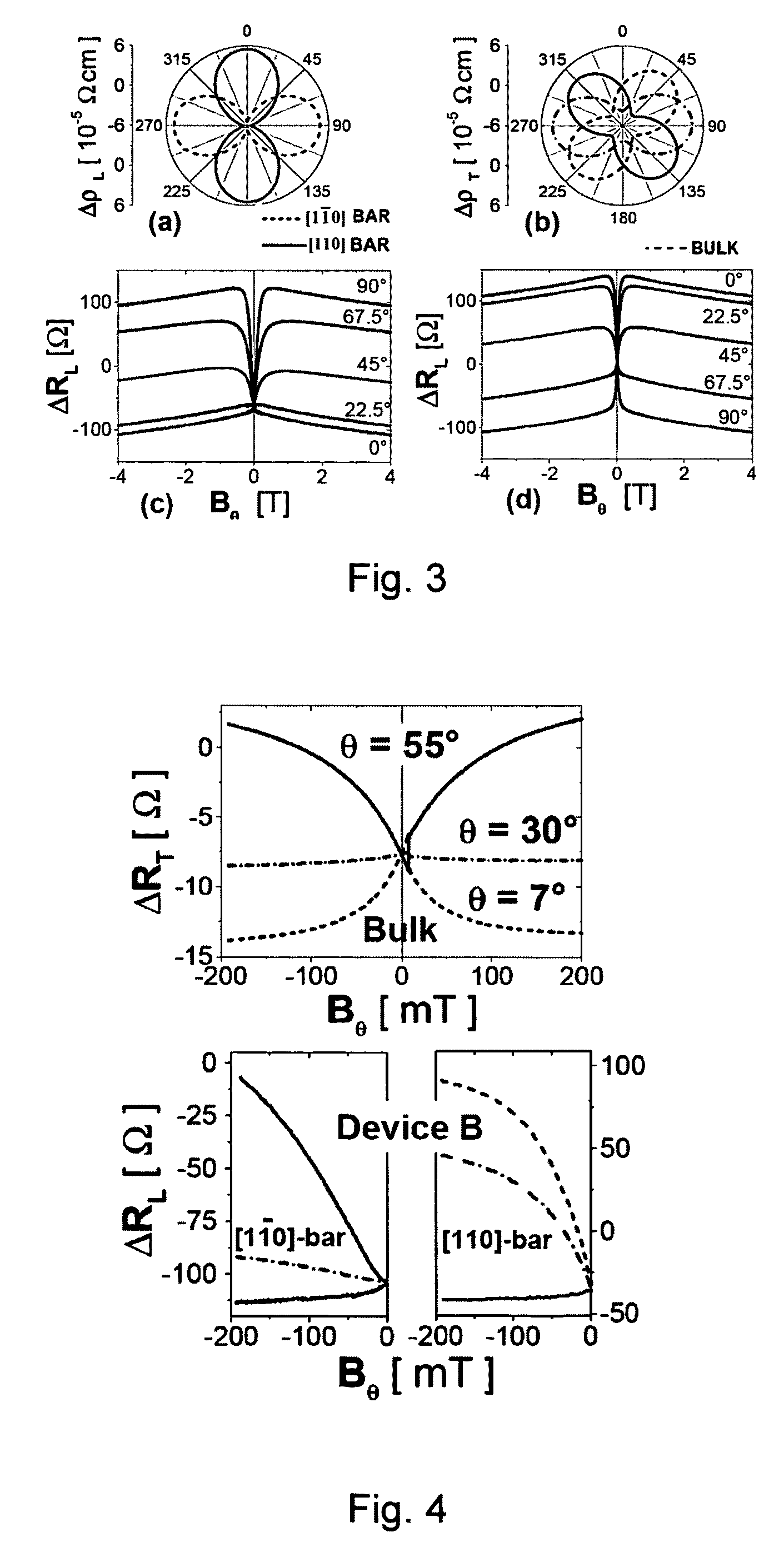Magnetoresistive device
a magnetoresistive device and magnetic field technology, applied in static storage, information storage, digital storage, etc., can solve the problems of high current density, increased power consumption, increased magnetism field required to switch the free layer, etc., and achieve the effect of reducing power consumption
- Summary
- Abstract
- Description
- Claims
- Application Information
AI Technical Summary
Benefits of technology
Problems solved by technology
Method used
Image
Examples
Embodiment Construction
Electric Field Pulse Induced Magnetization Reversal
[0106]Referring to FIG. 1, a ferromagnetic element 1 of a magnetoresistive device in accordance with the present invention is shown. The ferromagnetic element 1 is assumed to have homogenously distributed magnetization, although this need not necessarily be the case.
[0107]The ferromagnetic element 1 exhibits magnetic anisotropy defining a magnetic easy axis 2. Magnetic anisotropy may arise as a result of, inter alia, the shape of the element and / or crystal structure. For example, the element 1 may be elongate and so the magnetic easy axis 2 may be aligned along a longitudinal axis.
[0108]Magnetisation 4 of the element 1 is aligned along a magnetic easy axis 2.
[0109]An external magnetic field 5 may optionally be applied to support precessional switching and, depending on orientation, to stabilize re-orientation of the magnetisation 3. For example, the external magnetic field 5 may be applied globally to an array of ferromagnetic eleme...
PUM
 Login to View More
Login to View More Abstract
Description
Claims
Application Information
 Login to View More
Login to View More - R&D
- Intellectual Property
- Life Sciences
- Materials
- Tech Scout
- Unparalleled Data Quality
- Higher Quality Content
- 60% Fewer Hallucinations
Browse by: Latest US Patents, China's latest patents, Technical Efficacy Thesaurus, Application Domain, Technology Topic, Popular Technical Reports.
© 2025 PatSnap. All rights reserved.Legal|Privacy policy|Modern Slavery Act Transparency Statement|Sitemap|About US| Contact US: help@patsnap.com



